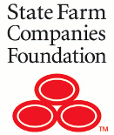Activities During the Academic Year
Introduction
During the school year, mentors, beginning teachers, and administrators all need regular and ongoing professional development. This will ensure that the induction and mentoring program goals/outcomes/expectations are met, that the program maintains momentum, and that program leadership provides responsive support on a consistent basis with a focus on student learning.
Tasks
- Provide time and structure for mentor/beginning teacher meetings
- Provide mentors and mentees with release time or schedule them for the same planning periods; otherwise, pairs can meet during lunch or before/after school.
- Communicate a list of requirements, including:
- How often pairs should meet (e.g. once a week for an hour; or a set number of hours per month)
- How mentors and mentees should keep track of their interactions, including when they met, what topics were discussed, and what progress has been made
- Provide suggestions for the content of those meetings, including:
- Personal/emotional support
- Information on school logistics and culture
- Feedback on beginning teacher successes
- Specific suggestions for beginning teacher improvement
- General advice on teaching (e.g. classroom management, running parent/teacher conferences, etc.)
- Ensure that mentors do regular (e.g. once per semester) observations of beginning teachers, to include:
- A pre-observation conference
- A formal observation with written feedback and suggestions for improvement
- A post-observation conference
- Encourage or require beginning teachers to spend time observing mentors or other experienced teachers.
- Provide ongoing professional development for beginning teachers (See Standard 7, Illinois Induction Program Continuum)
- Examine research on the professional development needs of beginning teachers
- Conduct a local needs assessment to determine topics for ongoing professional development and identify available resources within and outside the district. Examples of topics include:
- Classroom management
- Parent-teacher conferences
- School/district improvement plan or professional development plan
- Teacher evaluation instrument
- District and building initiatives (e.g., literacy)
- Instructional strategies
- Common Core Standards (as applied to Illinois)
- Meeting the needs of diverse student populations
- Danielson Framework
- Individual learning and growth plans
- Parents and the community
- Opportunities for beginning teachers to observe master teachers
- Pedagogy based on observations of veteran teachers
- Conferences, observations, and collaborative conversations with mentors
- Provide ongoing professional development for mentors (See Standard 6, Illinois Induction Program Continuum)
- Plan and schedule meetings/forums for mentors to reflect on, improve, and refine their practice
- Provide ongoing professional development for mentors to advance induction. Topics might include:
- Supports for district instructional initiatives
- Response to mentor and beginning teacher needs
- Follow-up training (after basic mentor training) to deepen mentor skills and promote beginning teacher development
- Enhanced communication skills
- Advocate for the program / share program information with the school community and other stakeholders
- Prepare messages to communicate program successes and share program challenges
- Maintain contact with the local press
- Provide regular information to the Board of Education
- Publicize program information in the district newsletter
- Inform staff regarding the program progress, purposes, and goals
- Provide stakeholders with information on program activities, relevant program demographics, and data collected about the program
- Conduct mid-year or ongoing program evaluation, such as: (See Standard 9, Illinois Induction Program Continuum)
- Exit slips after profession development sessions
- Focus-group interviews with beginning teachers
- Anonymous surveys for mentors
- Provide time and structure for mentor/beginning teacher meetings
Notes on Highly Effective Practices
- Beginning teachers need both a buddy (someone they can to go for support and information on school logistics) and an instructional coach (someone who can provide timely, specific, targeted advice and feedback to improve the beginning teacher’s practice). Often a single mentor fills both roles, but in other programs a beginning teacher may have two mentors: a buddy who is located in their building, and an instructional coach who may only visit the building for meetings and observations.
- Professional development should be a priority. However, new programs may start small and add more topics and opportunities as the program progresses.
- Professional development topics should be relevant and impact student achievement.
- Occasionally mentors and beginning teachers are mismatched. Encourage mentors and beginning teachers to address any problems they have with the Program Coordinator and reassign a mentor if necessary.
- Some items in this section can be done during the initial program planning; others need to be done annually; others should be done a number of times during the school year.


